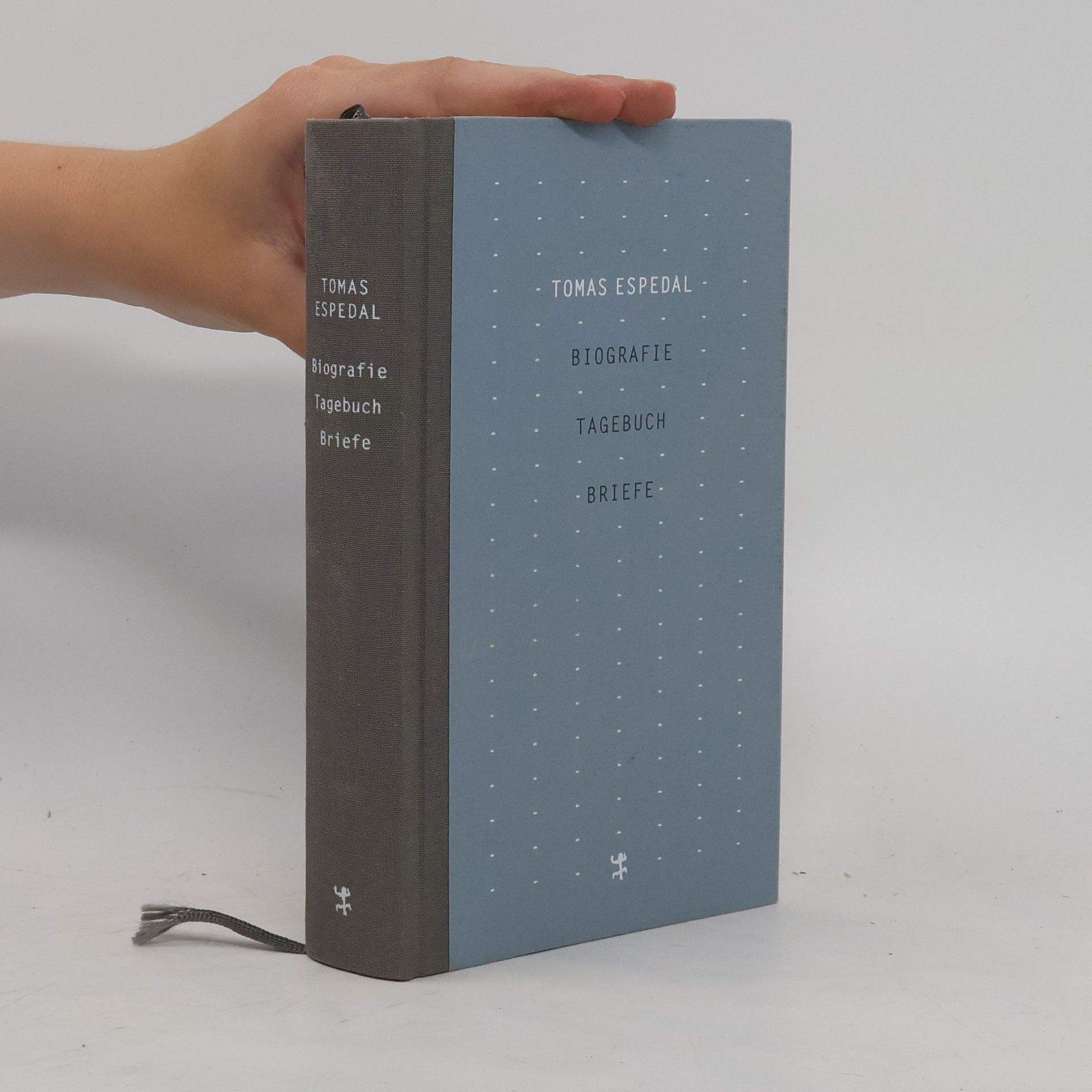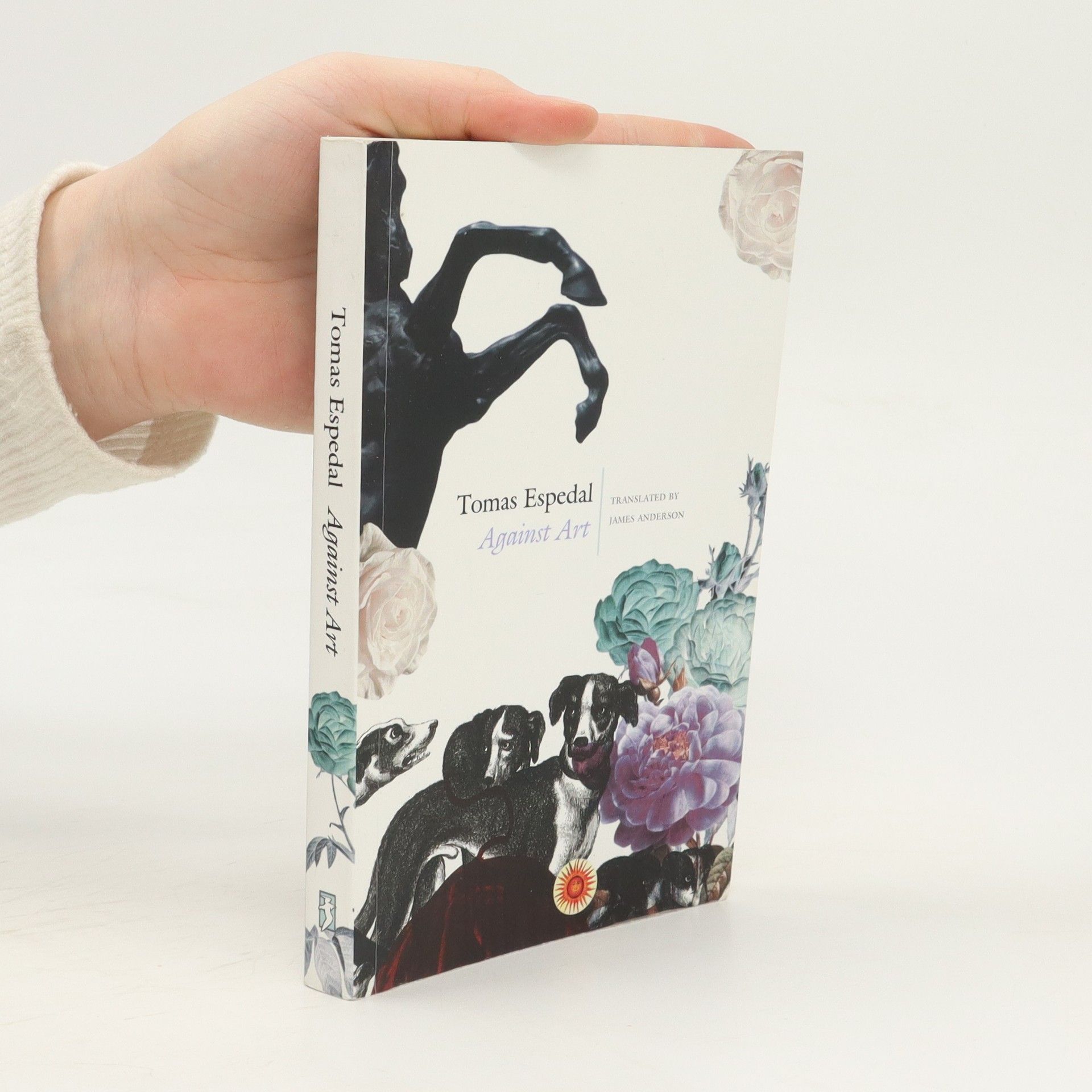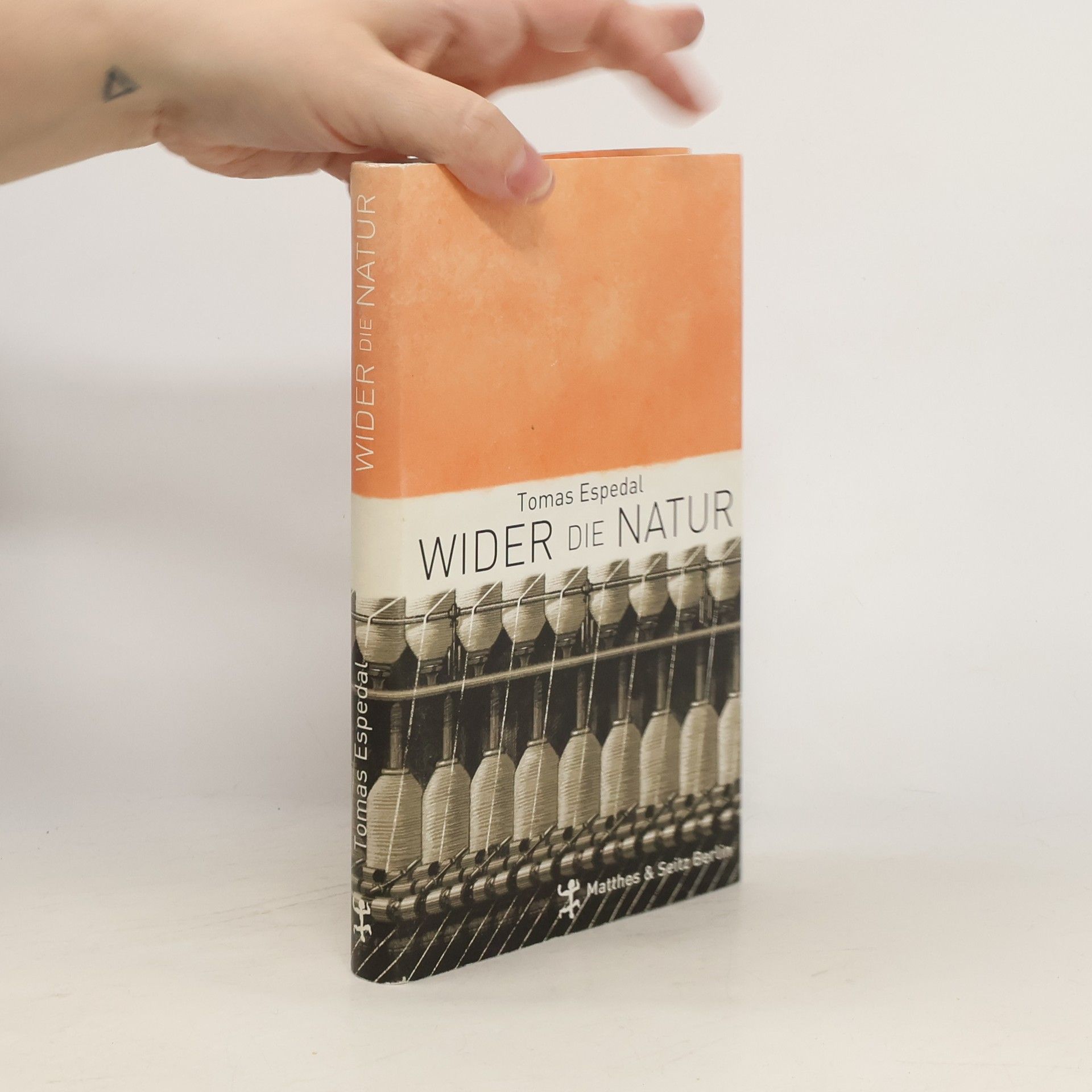A lyrical travelogue charting Tomas Espedal's journeys to and ruminations around the world, from his native Norway to Istanbul and beyond. "Why travel?" asks Tomas Espedal in Tramp, "Why not just stay at home, in your room, in your house, in the place you like better than any other, your own place. The familiar house, the requisite rooms in which we have gathered the things we need, a good bed, a desk, a whole pile of books. The windows giving on to the sea and the garden with its apple trees and holly hedge, a beautiful garden, growing wild." The first step in any trip or journey is always a footstep--the brave or curious act of putting one foot in front of the other and stepping out of the house onto the sidewalk below. Here, Espedal contemplates what this ambulatory mode of travel has meant for great artists and thinkers, including Rousseau, Kant, Hazlitt, Thoreau, Rimbaud, Whitman, Giacometti, and Robert Louis Stevenson. In the process, he confronts his own inability to write from a fixed abode and his refusal to banish the temptation to become permanently itinerant. Lyrical and rebellious, immediate and sensuous, Tramp conveys Espedal's own need to explore on foot--in places as diverse as Wales and Turkey--and offers us the excitement and adventure of being a companion on his fascinating and intriguing travels.
Tomas Espedal Libros
Tomas Espedal experimenta frecuentemente con la transgresión de géneros, explorando la relación entre la novela y formas como el ensayo, la carta, el diario, la autobiografía y el relato de viajes. Su obra se caracteriza por una voz única que refleja una profunda contemplación sobre la esencia del arte y la vida. Espedal se enfoca en cómo diversos estilos de escritura pueden revelar aspectos complejos de la existencia humana. Su enfoque literario es intuitivo, buscando la verdad en emociones crudas y reflexión.







The companion volume to Espedal's Against Art, written in his characteristic poetic prose. In contemporary Norwegian fiction Tomas Espedal's work stands out as uniquely personal; it can be difficult to separate the fiction from Espedal's own experiences. Against Nature, a companion volume to Espedal's earlier Against Art, is an examination of factory work, love's labor, and the work of writing. Espedal dwells on the notion that working is required in order to live in compliance with society, but is this natural? And how can it be natural when he is drawn toward impossible things--impossible love, books, myths, and taboos? He is drawn into the stories of Abélard and Héloïse, of young Marguerite Duras and her Chinese lover, and soon realizes that he, too, is turning into a person who must choose to live against nature. "A masterpiece of literary understatement. Everybody who has recently been thirsting for a new, unexhausted realism, like water in the desert, will love this book."--Die Zeit, on the Norwegian edition
A novel of intersecting historical threads. Love narrates celebrated Norwegian writer Tomas Espedal's search for death. The decision blossoms within I--the I-person--"like some interior bloom, black and beautiful" on a warm spring day in May, and it is this resolution that fills his self-imposed final year with meaning: Death. It can be so beautiful. One must create this beauty for oneself. One must submit to this naturalness, one must choose it, like pulling the duvet over oneself in bed or jumping off a bridge. But almost immediately life deals I a wildcard: a new love affair brings some of the best days he's ever known and threatens his pact with death. Will he be able to leave Aka and the child she's carrying? He has put an endpoint on his life to intensify experience but is he sure that disappearing from their lives, becoming an absent father, is the best thing for all of them? Set against Espedal's constant reference, the ebb and flow of the seasons, something close to ecstasy propels this most introspective of narratives towards a universal truth.
In contemporary Norwegian fiction Tomas Espedal's work stands out as uniquely personal; it can be difficult to separate the fiction from Espedal's own experiences. In that vein, his novel Against Art is not just the story of a boy growing up to be a writer, but it is also the story of writing. Specifically, it is about the profession of writing--the routines, responsibility, and obstacles. Yet, Against Art is also about being a father, a son, and a grandson; about a family and a family's tales, and about how preceding generations mark their successors. It is at once about choices and changes, about motion and rest, about moving to a new place, and about living. Praise for the Norwegian Edition "One of the most beautiful, most important books I've read for years."--Klassekampen "Espedal has written an amazingly rich novel, which will assuredly stand out as one of the year's best and will also further fortify the quality of Norwegian literature abroad."-- Adresseavisen "Against Art attacks literature while at the same time being intensely literary. Our greatest sorrows and torments, the individual experiences often so anemic in art, find a voice of their own."--Morgenbladet "Against Art moves me with its maternal history and proves yet again that Tomas Espedal writes great novels."--Dag og Tid
Written as a long poem, The Year is Espedal's riveting stream of consciousness--profound, edgy, sometimes manic, but always intensely intimate
Ein Buch wie ein Vermächtnis. Tomas Espedal schreibt in seinem bislang intimsten Buch über die Orte, an denen er lebte, die Frauen, die er begehrte, die Gesichter derer, die er als junger Boxer zertrümmerte, die Bücher, die er las, und über die Liebe zu seiner sterbenden Mutter. Espedal lotet die Grenzen von fiktionalem und autobiografischem Schreiben aus : In jedem der in sich eigenständigen Texte »Biografie«, »Tagebuch« und »Briefe« gibt er schmerzvoll preis, wie er wurde, was er ist, bis am Ende der Schriftsteller über die Privatperson siegt.
Ein Mann wird älter. Er verliebt sich in eine junge Frau. Sie beginnen eine Affäre. Die junge Frau verlässt den älteren Mann. Eine alte Geschichte, doch für Tomas Espedal bedeutet sie einen Riss in seinem Leben, der einen intensiven Erinnerungsprozess in Gang setzt: Seine Jugend, die erste Liebe, die Zeit mit seiner verstorbenen Frau, große Momente, schwere Stunden und Erfahrungen des Alltags ziehen an ihm vorbei. Die tragische Auflösung des Ich-Erzählers wird von der Auflösung der literarischen Form begleitet, die in einem Notizbuch mündet, das mit den unversöhnlichen Worten schließt: »Du sagst Ende, aber die Liebe wird nicht enden.« Ein erschütternd kompromissloses Buch. Ein Heilmittel gegen den Schmerz der Liebe.
Ein Mann verlässt seine Frau, sein Kind, sein Haus. Er beschließt zu gehen, das Leben eines Landstreichers zu führen, und macht sich auf den Weg, der ihn zu sich selbst bringen soll. Er scheitert, trinkt, beginnt von Neuem. Den Leser nimmt er mit auf diese delirierenden, existenziellen und besessenen Reisen zu Fuß von Norwegen durch Deutschland nach Frankreich, nach Griechenland, durch ein Europa der Kunst, der Mythen, der Städte. Bestimmt vom Rhythmus harten Gehens, von der Dunkelheit der Trunkenheit und der vollständigen physischen Erschöpfung, tritt er in Dialog mit Rousseau, Rimbaud, Satie, Giacometti, Heidegger und erlebt ein Abenteuer des Denkens: Mit nichts als sich selbst, ganz auf sich zurückgeworfen, was bleibt, wer ist man?

